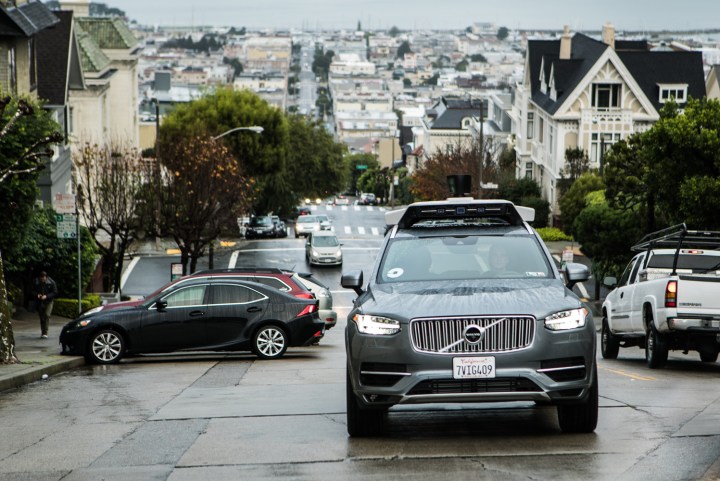
The ride-hailing giant said it was forced to abandon trials of its self-driving technology on the city’s streets after California’s Department of Motor Vehicles (DMV) revoked the registrations for its autonomous vehicles.
“We have stopped our self-driving pilot in California as the DMV has revoked the registrations for our self-driving cars,” an Uber spokesperson told Digital Trends in an emailed statement. “We’re now looking at where we can redeploy these cars but remain 100 percent committed to California and will be redoubling our efforts to develop workable statewide rules.”
Explaining its actions, the DMV said: “It was determined that the registrations were improperly issued for these vehicles because they were not properly marked as test vehicles. Concurrently, the department invited Uber to seek a permit so their vehicles can operate legally in California.”
The move comes a week after the DMV ordered Uber to halt tests of its 16 self-driving Volvo XC90 vehicles in San Francisco, insisting the company needed special permission to drive the cars on California’s public roads.
But Uber continued, arguing that special permits weren’t required because an on-board technician was constantly monitoring the car’s behavior and was ready to intervene at a moment’s notice if necessary.
As the DMV began threatening legal action, Mayor Ed Lee last week became involved, calling on the ride-hailing company to “stop the unpermitted and unlawful testing of autonomous vehicles.”
But now, by revoking the registrations on Wednesday, the DMV has forced Uber’s self-driving cars off the streets of San Francisco. The DMV has invited Uber to apply for the required permits, saying it “fully supports the advancement of autonomous technologies,” but insists it “must be tested responsibly.”
For many who’ve been following the spat between Uber and the DMV, the eventual outcome won’t come as a huge surprise. Uber, which happens to be headquartered in the city, had come under increasing pressure in the last week to put the brakes on its self-driving trials. Its cause hadn’t been helped by a number of reports in recent days, including how one of the autonomous cars ran a red light. There was also the suggestion that its technology was causing its vehicles to make dangerous maneuvers across bike lanes in the city, an issue that Uber itself acknowledged.
In the meantime, Uber will continue testing its self-driving vehicles in Pittsburgh, where it’s been conducting trials on public roads – with paying passengers as well as an on-board technician – since September 2016, though general testing started back in May.


